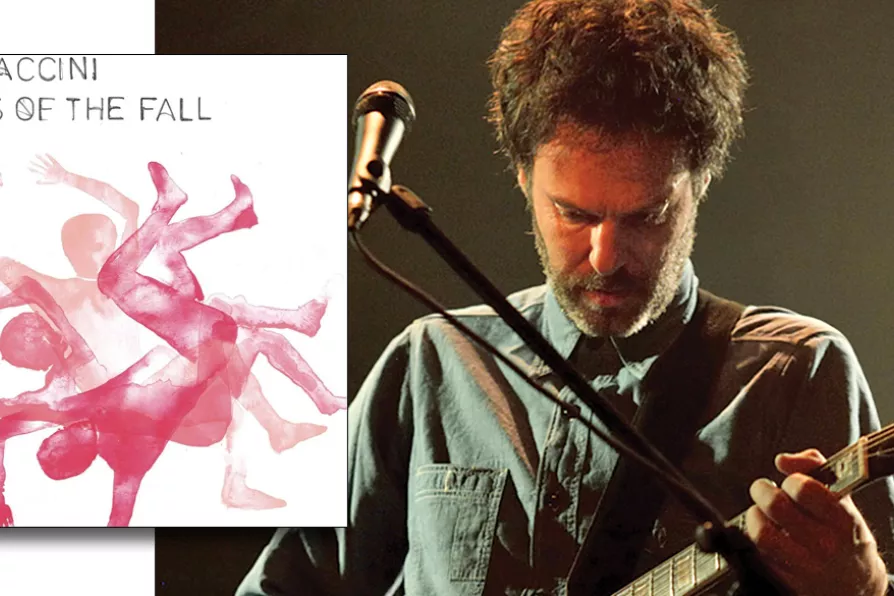MARIA DUARTE reviews Desperate Journey, Blue Moon, Pillion, and Wake Up Dead Man: A Knives Out Mystery

 ENVIRONMENTALLY CONCERNED: Piers Faccini
[Olivier Wavre/hemu.ch]
ENVIRONMENTALLY CONCERNED: Piers Faccini
[Olivier Wavre/hemu.ch]
“I CARRY immigrant songs in my blood,” Piers Faccini tells me, “like fragments from a lost homeland that I’ll never find.” An unsurprising declaration, given his Italian, Irish and Ashkenazi roots, and that cosmopolitanism is ever-present on his new album Shapes of the Fall.
A beautifully lyrical and defiant response to “a daily witnessing of the dismantling of the natural world around us,” it’s also Fallccini’s response to “the daily round of news detailing our free-falling ransacking of the planet.”
Born in Luton in 1970, Faccini learned piano, guitar and wrote songs from his early teens. He discovered Malian songwriters like Ali Farka Toure and Boubacar Traore and Mississippi bluesman Skip James and this inspired him to swap electric for acoustic guitar. “I went in a folk direction from then on,” he says.

New releases from Allo Darlin’, Loyle Carner and Mike Polizze

CHRIS SEARLE speaks to Ethiopian vocalist SOFIA JERNBERG












